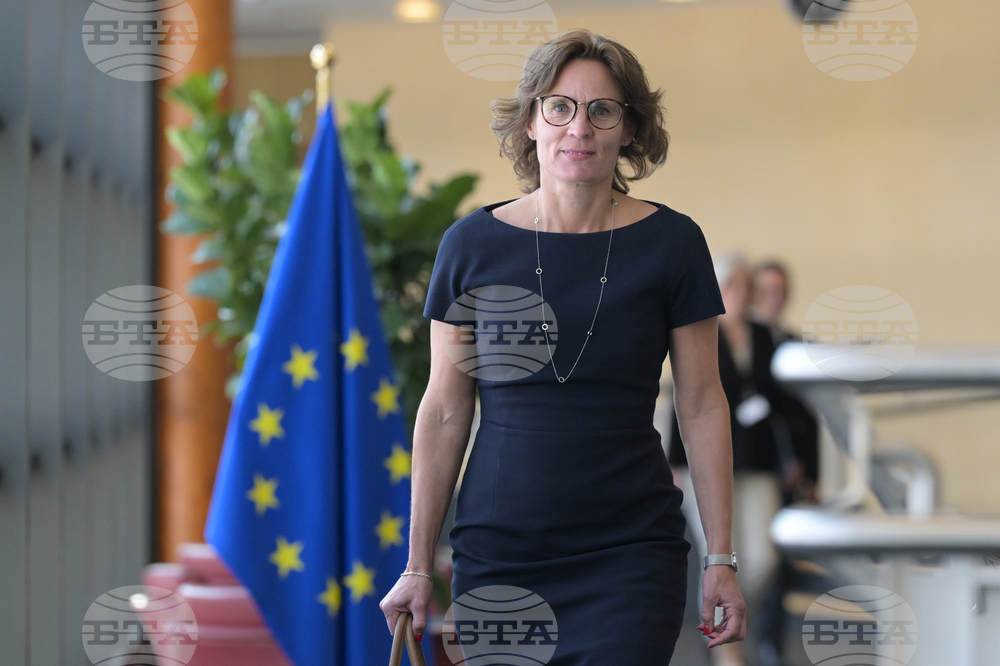site.btaEU Environment Commissioner Roswall: Water Is No Longer Business As Usual


In the global race for resources, Europe must take leadership on the transition to water-smart societies, Jessika Roswall, the European Commissioner for Environment, Water Resilience and a Competitive Circular Economy, says in an op-ed for BTA. Water is no longer business as usual but a strategic resource for our security, she argues there.
The op-ed is put out on the day the European Commission presented a report on the implementation of the Water Framework Directive, the Floods Directive, and the Marine Strategy Framework Directive. The document also includes data reported by most EU countries, highlighting the progress made in improving the state of water bodies over the past six years. It also identifies key areas where additional efforts are needed. The reports provide valuable information on the condition of the EU’s freshwater and marine waters, the actions taken to improve them, and the measures implemented to reduce flood risks.
Following is the full text of the op-ed by Commissioner Roswall:
We have entered an era of fierce global competition. To access energy. To access raw materials. To access new technologies. In this context, we need a change in mindset when it comes to accessing water. Water is no longer business as usual. It is a strategic resource for our security. Yet, water is under huge stress. We see more and more floods and droughts. The quality of water is deteriorating due to pollution and climate change. At the same time, water needs are increasing. The data centers needed to power our digital economy consume millions of liters of water every year. From land to ocean, our water cycle is broken.
That is why I am putting water high on the agenda of the European Commission, as the first ever Commissioner in charge of water. Later this year, I will present an EU water strategy. As a first step, we are analysing the situation of rivers, floods and marine areas in the Member States so that we can identify the problems and look for solutions together.
The findings from our report are clear. Our waters are polluted. Both fresh and marine waters. Our water supply is under threat. The risk of serious floods is high. Less than 40% of EU surface water bodies are in good ecological status, meaning that it shows low levels of distortion resulting from human activity. And only 25% are in good chemical status, meaning that the relevant thresholds of hazardous substances are not exceeded. Mercury and other toxic pollutants are a major source of contamination. PFAS in water - known as ‘forever chemicals’ that are very difficult to break down in the environment - also raise a lot of public concern in many Member States.
While some progress has been made over the last years in Europe, there is still a lot of work to do. There is no one-size-fits-all approach to water management. Each country is in a different situation. The Mediterranean regions faces different challenges than the Alps. Pollution varies depending on the local impact of different economic sectors. But all Member States have to do more to protect their water systems, address pollution, manage climate change and boost flood risk management.
Based on our reports, we are launching a public call for evidence. I am convinced that our citizens, businesses and public authorities can share a lot of innovative ideas that we can build on. This will feed into the EU water strategy that will be launched later this year. Our goals are clear.
First, restore the water cycle. With inclusive governance, state-of-the-art infrastructure, and nature-based solutions, based on stronger public and private finance.
Second, foster a competitive and circular EU water economy. Europe is home to many innovative water tech companies, 40 % of the patents for water management are made in the EU. We must scale up that potential at home and on global markets.
Third, ensure clean water for everybody. At the end of the day, we all need clean water to thrive: citizens, companies, industry, farmers. We need everybody on board to reduce water stress, to achieve water security and to make our water industry more competitive.
In the global race for resources, Europe must take leadership on the transition to water-smart societies.
/NF/
news.modal.header
news.modal.text